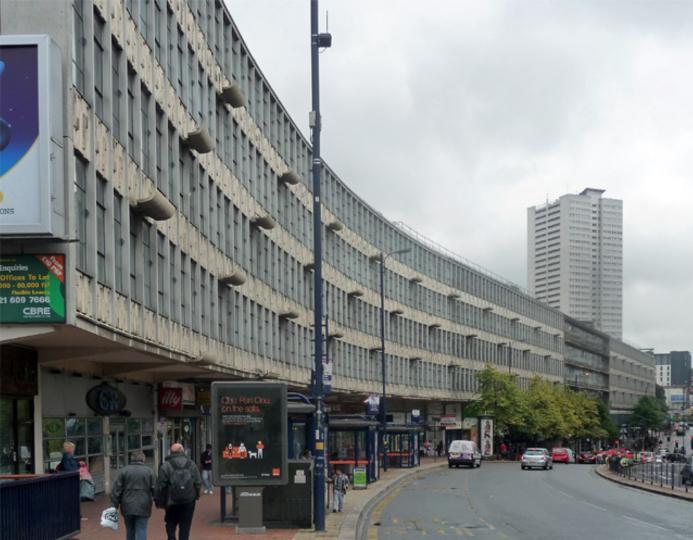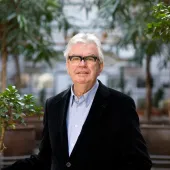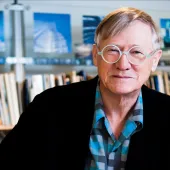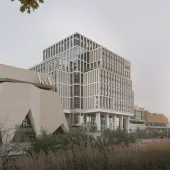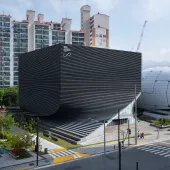High Court rejects bid to save Ringway Centre
The High Court has rejected a judicial review application challenging the redevelopment of Birmingham's iconic Ringway Centre, marking a significant step forward for developer CEG’s plans to demolish the 1960s brutalist building and construct three residential towers in its place.
In June, a judge refused permission for the judicial review, which had been sought by the Save Smallbrook campaign group. The group, consisting of Brutiful Birmingham, Birmingham Modernist Society, Twentieth Century Society, and Zero Carbon House Birmingham, argued demolition would have severe heritage and carbon costs.
They have expressed their determination to continue their campaign and are considering an appeal.
The redevelopment project, designed by Corstorphine & Wright, received planning consent from Birmingham City Council’s planning committee in February. This followed a previous approval in September, which had been overturned due to concerns about the carbon cost of the scheme.
The proposal includes construction of three towers of up to 56 storeys, housing approximately 1,700 apartments, commercial space, and resident amenities.
Campaigners argue the Ringway Centre, designed by architect James A. Roberts, should be preserved and repurposed rather than demolished. They highlight the building's significance as a landmark of post-war design and point to an alternative scheme, "Re-Imagining Smallbrook Ringway: A Counter-Proposal for Adaptive Re-use," which proposes creating 450 homes with three new 20-storey towers.
Following the ruling, Mary Keating, spokesperson for Save Smallbrook, said: "We are determined to have all the facts of this planning application scrutinised and exposed. This is a David-and-Goliath situation, with a small group of passionate Birmingham campaigners up against a large London property developer and the largest local authority in Europe."
Supporters of the retrofit approach, including Grand Designs presenter Kevin McCloud and architects Peter St John and Níall McLaughlin, argue adaptive reuse is more sustainable and preserves the city’s architectural heritage. The Twentieth Century Society estimates that the demolition and rebuild plan would result in a carbon cost of 187 million kg of CO₂.
Despite the campaigners’ efforts, the council's planning committee members have praised the Corstorphine & Wright scheme for its potential to contribute significantly to housing and improve connectivity and safety in the Southside area.
Councillor Gareth Moore highlighted the scheme’s "significant contribution to housing," while Councillor Jack Deakin noted its "benefits around safety and connectivity for the Southside."
As the situation develops, the future of the Ringway Centre remains contested, balancing between the proposed new development and the preservation efforts driven by environmental and heritage concerns.

